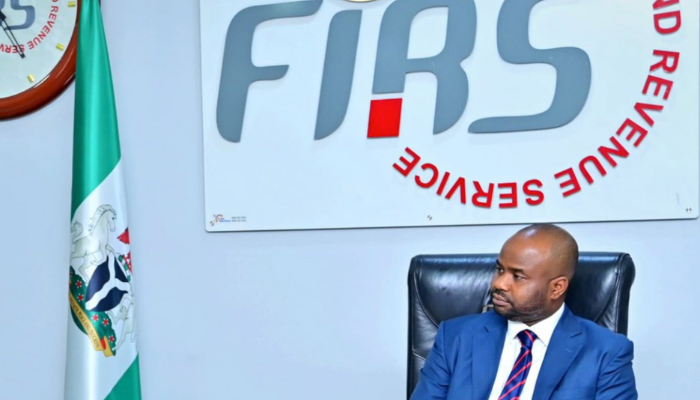The Chairman of the Federal Inland Revenue Service (FIRS), Dr. Zacch Adedeji, has justified the Federal Government’s borrowing strategy, stating it aligns with the Appropriation Act approved by the National Assembly.
Speaking during an interactive session on the 2025–2027 Medium Term Expenditure Framework (MTEF) and Fiscal Strategy Paper (FSP) in Abuja on Monday, Adedeji emphasized that borrowing is embedded in the government’s budgetary plans. The session was organized by the National Assembly Joint Committees on Finance, National Planning, and Economic Affairs.
Addressing concerns raised by Senator Adamu Aliero (PDP-Kebbi) over the continued loan approvals despite surplus revenue, Adedeji clarified that borrowing is a planned component of the government’s fiscal strategy.
“Borrowing is part of what has been approved by the National Assembly for the Federal Government. Surpassing revenue targets does not negate the activation of the borrowing component stipulated in the Appropriation Act,” he said.

The Minister of Budget and Economic Planning, Senator Atiku Bagudu, further explained that borrowing is essential to bridging the N9.7 trillion deficit in the N35.5 trillion 2024 budget.
“Despite surpassing revenue targets, borrowing remains crucial for budget funding and addressing deficits, particularly to enhance productivity for the poorest and most vulnerable Nigerians,” Bagudu stated.
He also highlighted the government’s Agenda 2050, which aims to achieve a GDP per capita of $33,000, as a framework for Nigeria’s long-term economic development.
The Minister of Finance and Coordinating Minister of the Economy, Mr. Wale Edun, expressed optimism about Nigeria’s economic trajectory, crediting President Bola Tinubu’s administration for implementing reforms.
“Decisions on petroleum pricing and foreign exchange reforms have sent positive signals to investors,” Edun noted, adding that strategic measures for the 2025 budget would further position Nigeria for growth.
Several revenue-generating agencies reported exceeding their 2024 fiscal targets during the session. The Nigeria Customs Service (NCS) announced generating N5.352 trillion as of September 30, surpassing its N5.09 trillion target, with projections of N6.3 trillion for 2025. The Nigerian National Petroleum Company Limited (NNPCL) reported revenue generation of N13.1 trillion against a projection of N12.3 trillion, with a 2025 projection of N23.7 trillion. FIRS disclosed significant achievements, including N5.7 trillion in Company Income Tax against a N4 trillion target and N1.5 trillion from Education Tax, exceeding its N70 billion target.
Meanwhile, the Nigerian Senate recently approved President Tinubu’s $2.2 billion external borrowing request to fund ongoing projects in the 2024 Appropriation Act. The Senate Committee on Local and Foreign Debts, led by Senator Aliyu Wammako (APC-Sokoto), endorsed the loan, citing its necessity for national development.
Despite successes reported by some agencies, the Nigerian Immigration Service faced criticism for its unclear revenue performance. Senator Sani Musa (APC-Niger) urged the service to clarify its Public-Private Partnership for passport production and reappear before the committee.
The government maintains that strategic borrowing is vital to meeting fiscal targets, enhancing economic productivity, and driving long-term growth.



